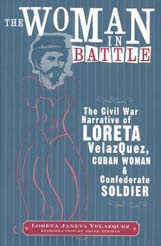Scott Sanders is a former Chair of the English department, who gave this speech at Graduation Convocation, 2013, a speech pertinent to all English majors:
Thank you, Professor Houston.
What a great pleasure it is to be back at this podium, here
at Woodward Hall, and looking at you, the graduates of our department for this
Academic Year, 2012-13.
I’m sure you know the commonplace (and completely mistaken)
assumption that anyone who majors in English can only become a teacher.
Certainly teaching at any level is a high calling, an absolutely vital
profession, and teaching English is centrally important in every curriculum at
every level in every school in our country.
But teaching most certainly is not the only profession your
English degree has prepared you to enter.
More than 40 years ago the major professional organization
for post-secondary English faculty, the Modern Language Association, began a
focused study of what undergraduate English majors did with their degrees after
graduation.
Fewer than 25% ever taught at any level for any length of
time over the several years of that study, which extended for more than two
decades. That means 75% never taught, and neither were they unemployed.
The study confirmed that English majors have many skills, and that many different professions value those skills.
In my own experience over the past 30 years, I’ve talked
with hundreds of managers, owners, and supervisors at dozens of businesses and organizations
and corporations large and small in New Mexico, our neighboring states, and
beyond.
For the most part, these are the people who mentored our
interns in their workplaces, and, in many cases, also hired our graduates. You
can see a snapshot, a slice, of the range of employment available to English
majors by looking at the list of internship placements available today on our
departmental web site.
One person I corresponded with at length was a senior
manager for a large national corporation headquartered in Ohio. He told me his
company actively sought English majors as the “most skilled” of the liberal
arts graduates his company was seeking to recruit and hire more and more in
recent years. It seems they were becoming disenchanted with business majors.
He wrote a one page document with a catchy title and sent it
to me:
Why XYZ Company Hires
and Promotes People with English Degrees
He listed six categories of skills, which were somewhat
repetitive (the document needed editing at the sentence, paragraph, and
headings levels, making his point about their need for English majors). His six
categories really came down to three familiar core skills: communication skills
(writing and speaking); research skills (the ability to find information); and
critical thinking skills (the ability to assess the value of information for
different users). Let’s consider these three skills a bit further.
Communication Skills
My correspondent wrote, “[English majors] are rarely
intimidated by deadlines and the prospect of creating multiple documents.”
New hires in their the first 3-6 months at XYZ were routinely
asked to write two to three 150 to 250 word abstracts of information they could
find about new clients, and these one-to-three-paragraphs-long documents were
due on rolling deadlines about every 1-2 weeks. All but the English majors
found this amount of writing and the associated deadlines daunting. The English
majors thought, “Hey, this is less work than I used to do years ago in English
101. No sweat.” Echoing Oliver Twist, I imagine that they all but said, “Please
sir, may I write some more?”
Research Skills
My correspondent wrote, “[English majors] are organized and
experienced in the methodology of retrievable storage activities that result in
research and information compilation.”
Translation: English majors know how to search more sites
than just Google; they keep accurate records of the URLs they consult; and they
know how to cut and paste.
Supervisors reading the abstracts produced by English majors
not only found the information they wanted, but they could follow the path
taken by the writer, and then branch off of that path confidently on their own to
find still more information of use. Good stuff, my contact told me.
Critical Thinking Skills
Again, my correspondent wrote, “[English majors] execute a
disciplined approach to situation analysis while implementing a critical
thinking approach to problem resolution.”
I suspect one has to have a business degree to write a sentence like
that.
Translation:
English majors actually thought about what information would be more important,
more useful, for their supervisors, and they placed that information in more
prominent positions in their abstracts. Finally, they offered explicit
conclusions about the significance of that information, about how it might
affect their employers’ future actions with their new clients.
More good stuff, and very, very rare among new hires, my
contact told me.
I’m here today to tell you that you made the right choice about
your major a few years back, that you are on the right track, and that your
study of English has prepared you for a wide range of meaningful professional
careers.
You have the skills you need to succeed.
You have the will you need to succeed.
And, more important than any skill, you have been building
something my corporate correspondent never directly addressed, although I see
it everywhere in everything he praised about English majors.
You have a measure of character, of maturity, and of wisdom
that, no matter how many years you may actually have now, is certainly beyond
any norm associated with that number of years.
This is so because you have read widely and you have read
well the stories that really matter, the stories that the writers of great
literature have given to us, stories about lives and worlds real and imaginary
that you have lived and inhabited and shared in the fullest sense in your own generative
imaginations that you engaged in the act of reading.
Although it is not so easily recognized, and it is far too
often taken for granted, reading is the one true foundation for all of those
other skills.
From the time you were first read to, and then eventually
began reading on your own, you started on a path that has led you to where we
are today, in Woodward Hall, at your graduation.
You are more than ready, and, finally, it is time.
Go out there beyond the classrooms where you have done so
well and make something great and good happen for yourself and all of us in the
new worlds that, through your actions, you will create.
Congratulations to you all.
Linwood Orange, English: The
Pre-Professional Major, 1972; 4th edition 1986.





